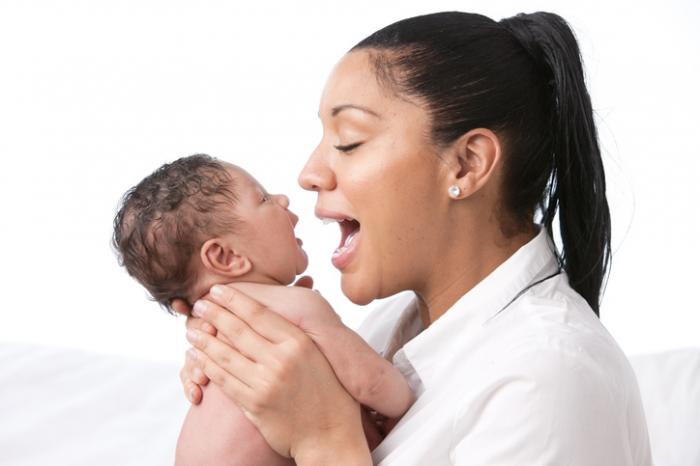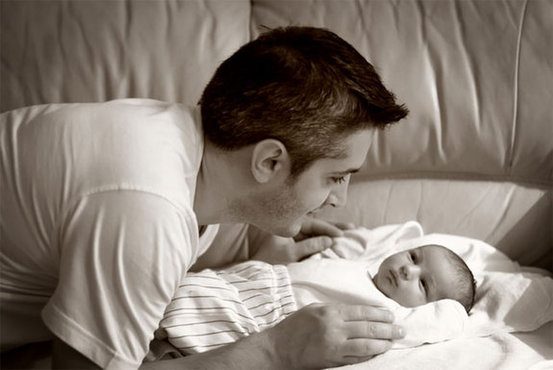BOUNCING TO MUSIC CAN HELP BABIES BOND, BECOME MORE COOPERATIVE

According to a study published in the journal Philosophical Transactions of the Royal Society, babies have some important lessons to share about bonding and the power of music.The findings show that music has important social effects on infants—as long as the little ones and their parents aren’t just listening passively, said Laura Cirelli, the study’s […]
INFANTS CAPABLE OF COMPLEX BABBLE MAY GROW INTO STRONGER READERS



Some skills needed for literacy may be developed in infancy Infants’ early speech production may predict their later literacy, according to a study published October 2018 in the open-access journal PLOS ONE by Kelly Farquharson from Florida State University and colleagues. Children with difficulties in identifying letters are more likely to develop reading impairments, but […]
WHO’S BETTER AT BABY TALK, MOM OR DAD?


The latest research shows that moms and dads use baby talk in different ways, and that boys and girls respond to them differently. In a study published in the online edition of Pediatrics, researchers looked at the language interactions between 33 late preterm and term infants and their parents by capturing 3,000 hours of recordings. […]
INFANTS’ LANGUAGE DEVELOPMENT IS ACCELERATED BY ATTENTIVE PARENTS



According to a new study from The University of Iowa and Indiana University, how parents react to their infants’ babbling impacts their language development. The research was recently published in the journal Infancy. The research team, includes Julie Gros-Louis, assistant professor of psychology at the University of Iowa. A study by Gros-Louis in 2003 compared […]
TOUCH INFLUENCES HOW INFANTS LEARN LANGUAGE



Tickling a baby’s toes may be cute but according to studies it’s also possible that those touches could help babies learn the words in their language. Research from Purdue University shows that a caregiver’s touch can help babies to find words in the continuous stream of speech. “We found that infants treat touches as if […]
BABIES RECOGNIZE RELATED WORDS



A new Duke University study finds that, by six to nine months, babies can already recognize that the meanings of some words, such as “car” and “stroller,” are more alike than other words, such as “car” and “juice.” “Even though there aren’t many overt signals of language knowledge in babies, language is definitely developing furiously […]
MOTHERS’ AND BABIES’ BRAINWAVES SYNCHRONIZE WHEN THEY GAZE AT EACH OTHER
Scientists have discovered that making eye contact with babies synchs their brainwaves with adults and could help them to learn and communicate more easily. Researchers already knew that when parents interact with their children their emotions and heart rate synchronize but they have never tested it with the brain until now. In a study of […]
FACTS EVERY PARENT SHOULD KNOW ABOUT THEIR BABY’S BRAIN
All babies are born too early If it weren’t for the size limitations of a woman’s pelvis, babies would stay developing in the womb for considerably longer, comparative biologists have suggested. Some pediatricians label a baby’s first three months of life as the “fourth trimester” of pregnancy to emphasize how needy, and yet devoid of […]
BABIES RETAIN THEIR EARLY EXPOSURE TO FOREIGN LANGUAGES



Babies may be more language-savvy than scientists thought: A study of people who were adopted as babies suggests that infants younger than 6 months may grasp crucial abstract information about their native tongue. They seem to store this information for years even if they don’t hear their native language in the interim. In the study, […]
From Sounds to Meaning
A study conducted by the Language, Cognition and Development Lab of SISSA says that without understanding the “referential function” of language (words as “verbal labels,” symbolizing other things), it is impossible to learn a language. This implicit knowledge is already present early in infants. If we did not know that a referential relationship exists between […]
